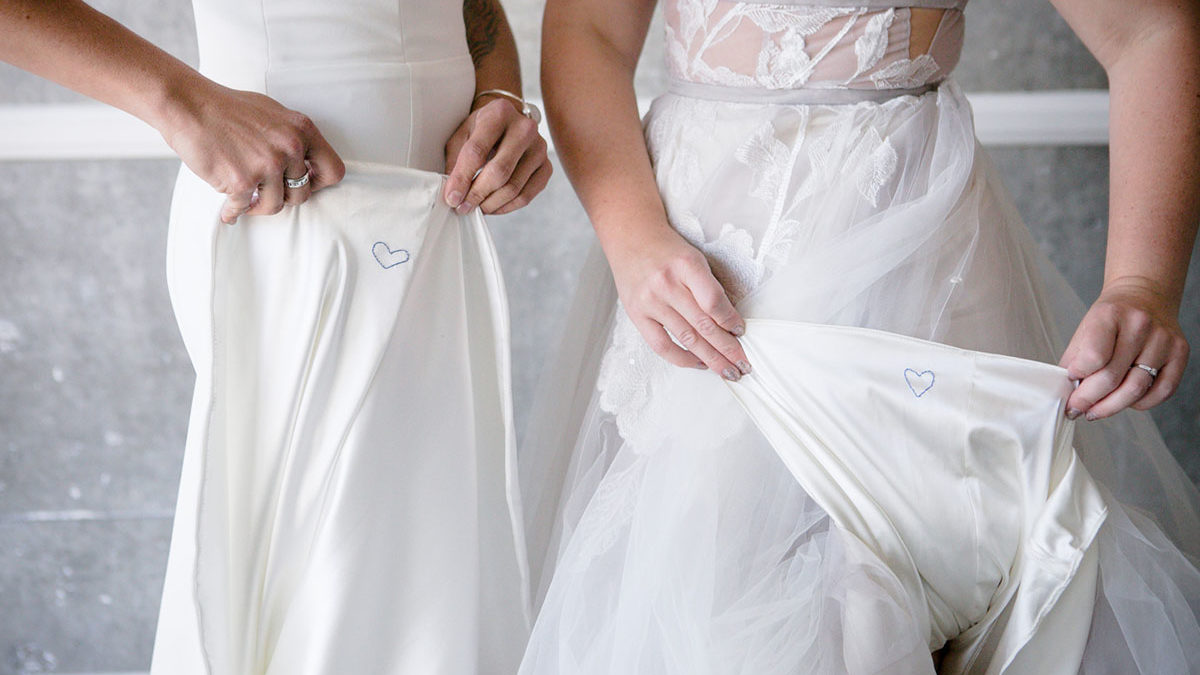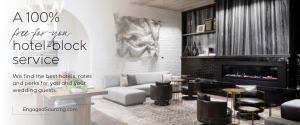The event coordinator at the seaside Rhode Island wedding venue my partner and I were looking at guided us from room to room.
“This is a room where you can get ready if you need to,” she explained, “and this is where some couples like to have the dance floor.” The rooms were open with sweeping views of the ocean below and intricate details laced around the mantels and gilded mirrors.
She’d been showing us around the property, and I was admittedly overwhelmed. There was so much rigamarole involved in wedding planning and many of the traditions felt gendered and needlessly stiff. I wanted to have fun. I wanted to celebrate my 10-year relationship. I wanted to be myself.
As an autistic queer person, I always expected that I’d have hesitations about planning my own wedding. Like a lot of autistic and LGBTQ+ people, I’m skeptical of cultural norms: If something feels too much like we’re doing it “because it’s always been that way” or “it’s what people expect,” I generally push back.
RELATED: HOW TO HAVE A SENSORY-FRIENDLY WEDDING THAT’S ACCESSIBLE TO AUTISTIC GUESTS
So I was surprised to find that once we found the right wedding vendors, everything clicked into place.
It started when my partner and I took the trip to Provincetown, Massachusetts, to check out a wedding venue by the beach that’s famous for its drag shows. The event manager greeted us warmly and offered us drinks and chips. As he toured us around, he explained that this venue wasn’t into ripping people off, pressuring them into anything or making the wedding anything other than what the couple wanted it to be. Basically: No bullshit, no rigamarole. I was instantly in love. I knew this was the place where we could have the whimsical, nerdy queer wedding of our dreams. We booked the venue a couple of days later once we were home.
What I don’t like about the wedding industry is how stiff and formal it can be. I’ve never been someone who likes to be given a dress code (and I won’t tell my guests what to wear either). As someone who is both autistic and queer, I feel like I’m constantly challenging what it means to exist in society.
The entire wedding industry isn’t like that, though, and it’s in those inclusive spaces where I’ve found the joy and excitement in wedding planning. We chose our wedding photographer after she took pictures of our proposal; one of the things I liked about her was how open she was to fun and whimsy during our photos. I’ve worked with photographers before who told me that my outfits were “too bright” or I was wearing “too many accessories,” and I don’t need that kind of negative energy anywhere near my wedding. If I want to wear a tiny top hat and glitter shoes at my wedding, I’m going to.
Once my partner and I found wedding vendors who eschew traditions and straight cisgender norms, I discovered how much I love wedding planning. As an autistic person, it’s incredibly rewarding to obsess over all the small details I usually don’t get so much input on: Rainbow books used as props for photos, tiny skeleton keys as decorations or a photo slideshow from our relationship playing on the reception venue walls.
When we have conversations about the autistic community, they’re often centered around challenges and barriers to access. I’m passionate about making the world more accessible to autistic people, but I also think it’s necessary to talk about autistic joy sometimes. Living my life as an autistic person isn’t all overcoming obstacles, it’s also the intense joy of planning what necklace I’m wearing to my wedding or finding just the right hollow book to carry our wedding bands in.
There’s also something deeply soothing about the planning process (when it isn’t stressing me out). It’s a chance to create an event that celebrates our love and honors the community of people who support us, and it’s actually kind of fun thinking ahead to all the pieces that need to come together to create the wedding. I’ve always been that person who is planning their birthday party five months in advance or writing my vows before I’ve even proposed.
Autistic people often get stereotyped as cold and unromantic. There’s a widespread assumption that we wouldn’t be interested in weddings because most of us only care about science and math, but that just isn’t true. I absolutely love fashion, events, photography, relationships, good food and dancing—all of which are key elements of a stellar wedding. And I know that even though many people probably believe I’m a burden to my soon-to-be-wife or that it’s a challenge to be married to an autistic person, I’m an excellent listener and a fair and loving partner. And that’s worth celebrating.
































